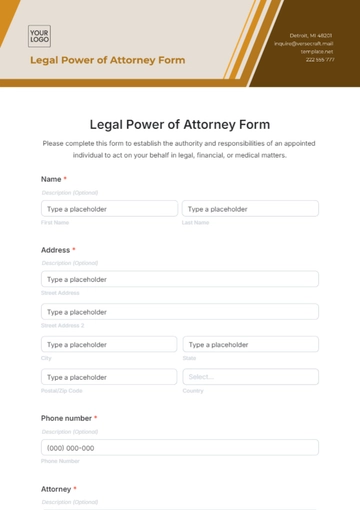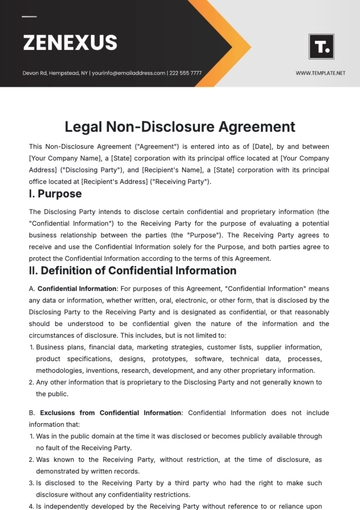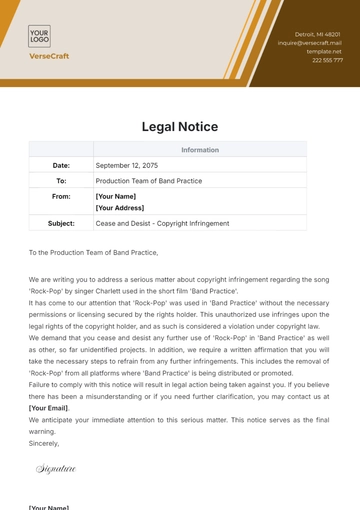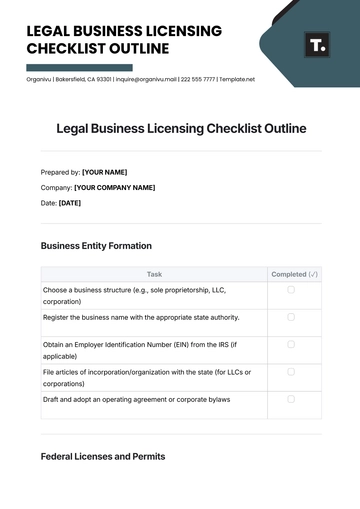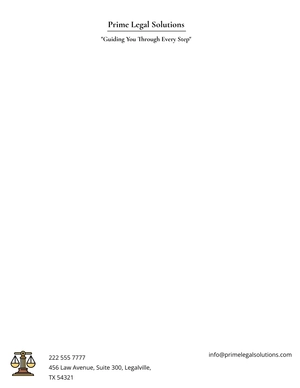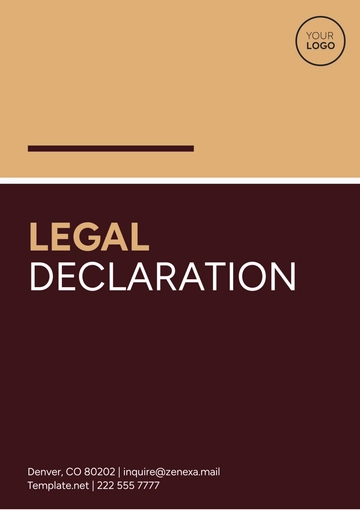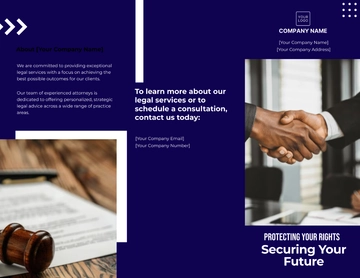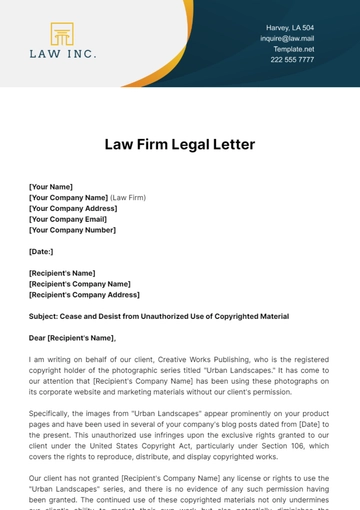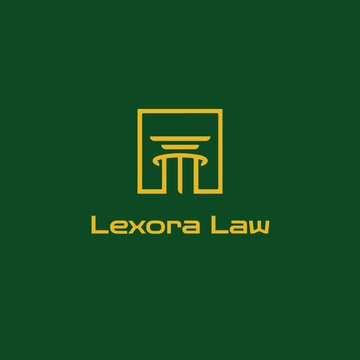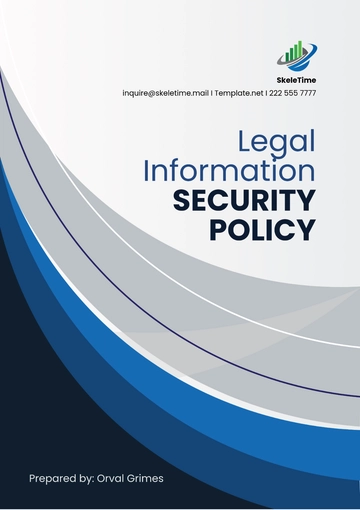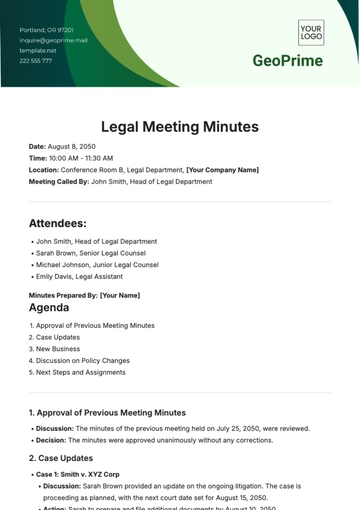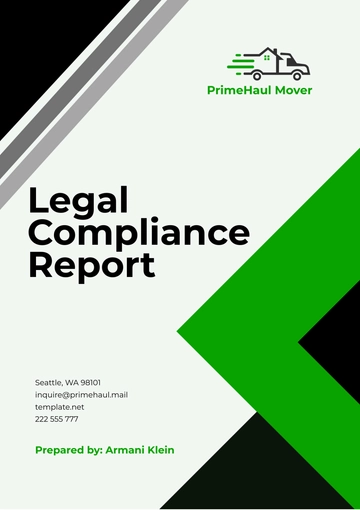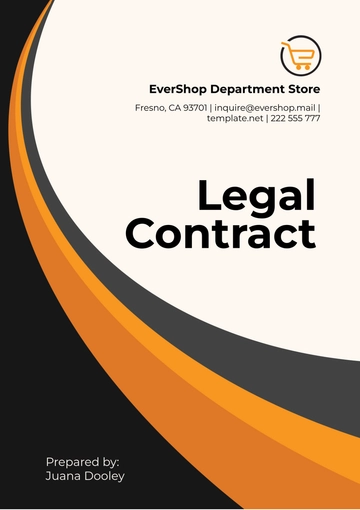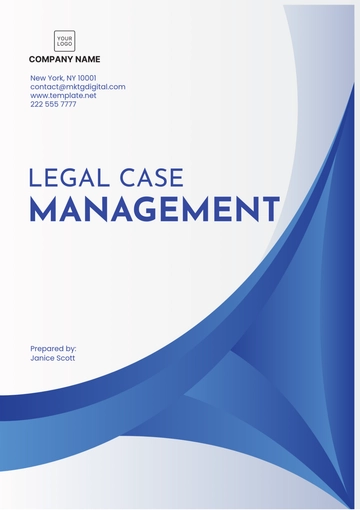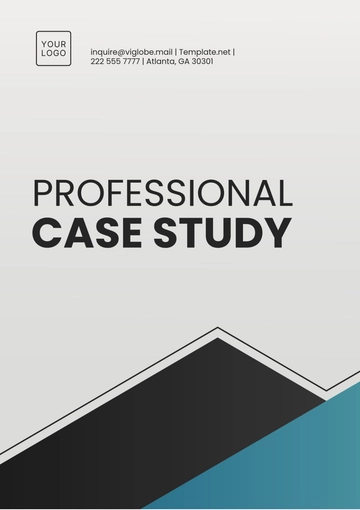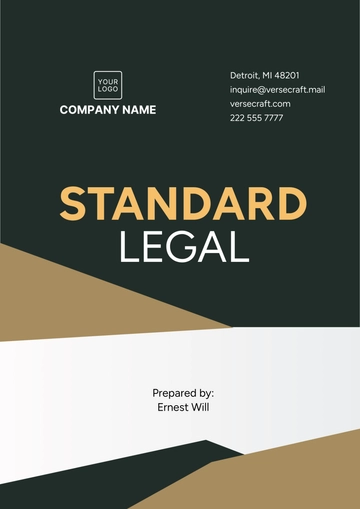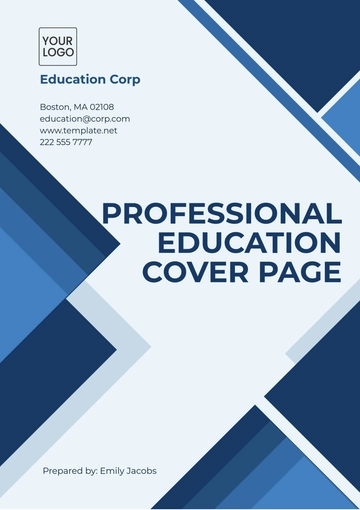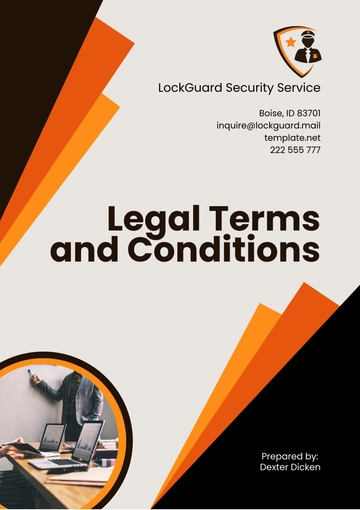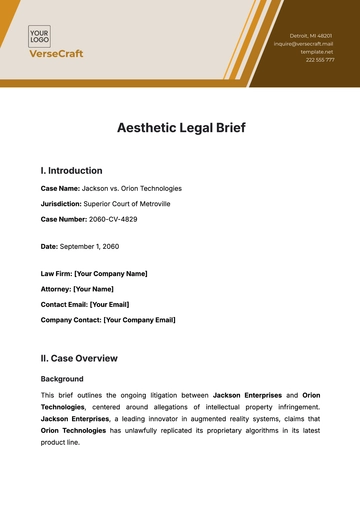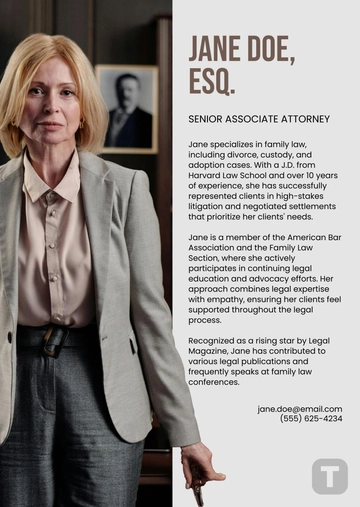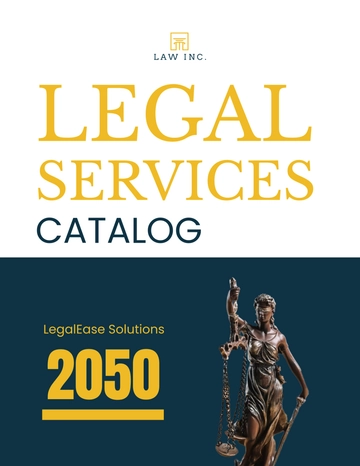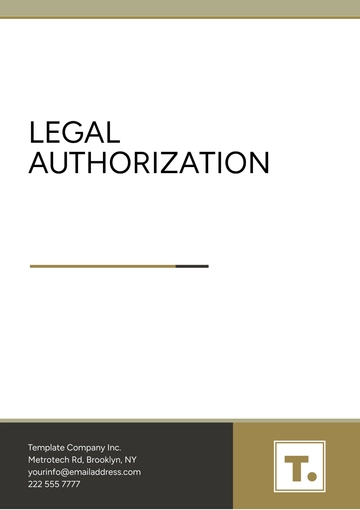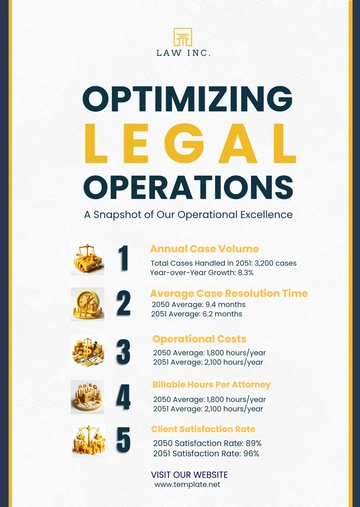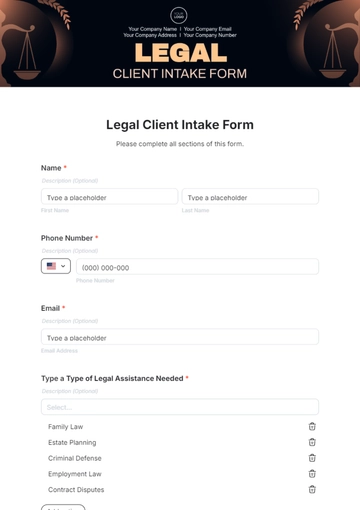Free Nursing Home Legal and Ethical Standards for Operations
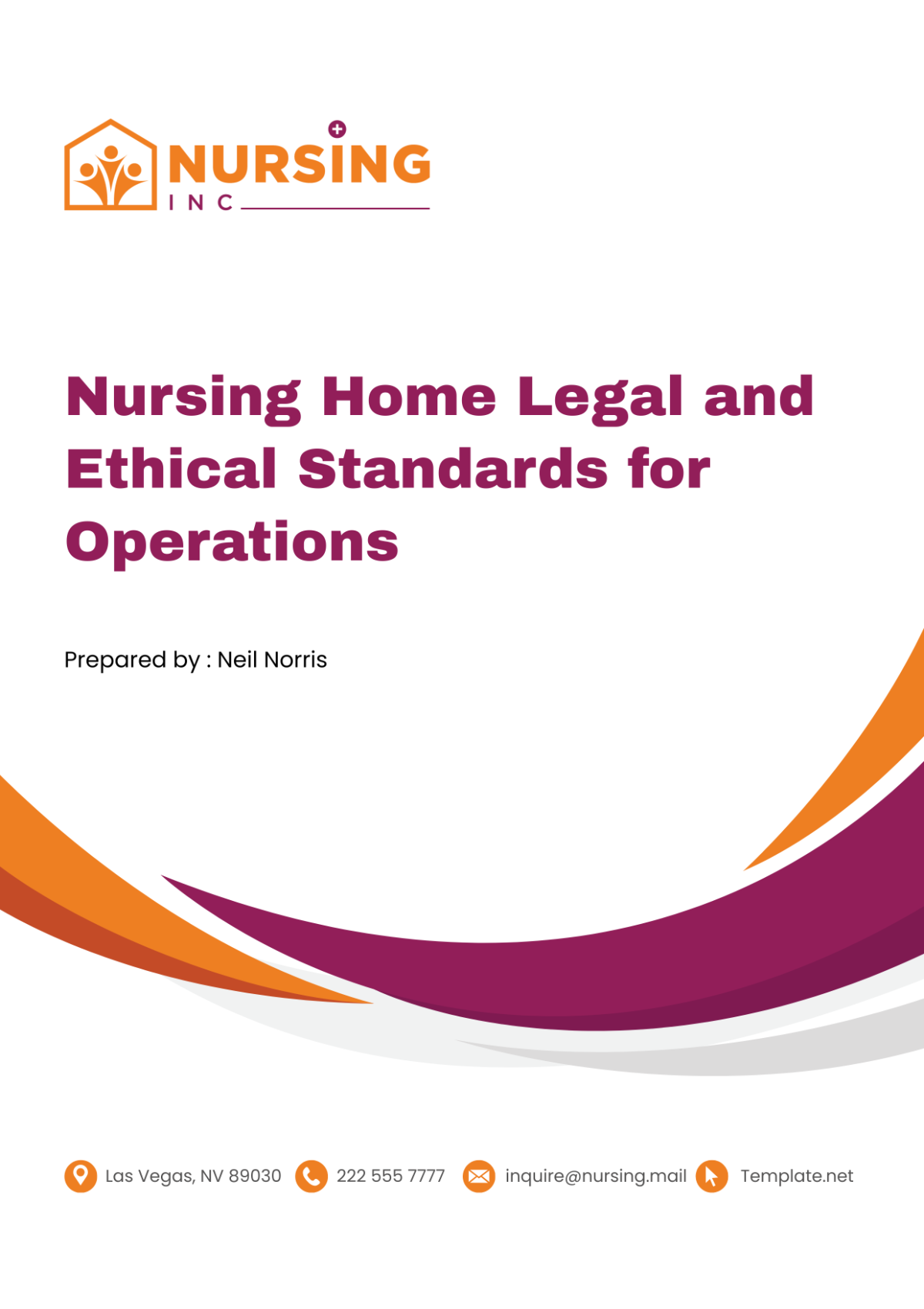
I. Introduction
A. Purpose of the Document
This document serves as a comprehensive guide outlining the legal and ethical standards that govern the operations of [Your Company Name]. Its primary purpose is to ensure clarity, consistency, and adherence to best practices in providing care and services to our residents. By establishing clear expectations for staff members and promoting a culture of accountability, this document aims to enhance the quality of care, promote resident safety, and protect the rights and dignity of all individuals under our care.
B. Scope and Application
These standards apply to all employees, contractors, volunteers, and agents of [Your Company Name], regardless of their role or position within the organization. They are designed to encompass all aspects of nursing home operations, including resident care, facility management, staff training, and regulatory compliance. Additionally, these standards apply to residents and their families, ensuring that they are aware of their rights and responsibilities while residing in our facility.
C. Legal Basis for Standards
The development of these standards is informed by a comprehensive understanding of relevant federal, state, and local laws and regulations governing nursing home operations. Key legal frameworks include the Nursing Home Reform Act, which outlines resident rights and quality of care standards, as well as laws such as the Americans with Disabilities Act and HIPAA, which protect resident privacy and ensure access to healthcare services. By aligning our standards with legal requirements, we aim to mitigate legal risks, uphold ethical principles, and maintain the trust and confidence of our residents, families, and regulatory agencies.
II. Resident Rights and Dignity
A. Right to Dignified and Respectful Treatment
Every resident of [Your Company Name] is entitled to be treated with dignity, respect, and compassion by all staff members and fellow residents. This includes addressing residents by their preferred names, using courteous language, and maintaining a professional demeanor at all times. Staff members are encouraged to engage with residents in a person-centered manner, taking into account their preferences, backgrounds, and individual needs to ensure a positive and dignified experience.
B Right to Privacy and Confidentiality
Residents have the right to privacy in their personal space, interactions, and communications within the facility. Staff members are expected to uphold strict confidentiality standards and only share resident information on a need-to-know basis, in compliance with HIPAA regulations and facility policies. Measures such as ensuring privacy during personal care activities, safeguarding medical records, and maintaining confidentiality in discussions with residents and their families are essential to protecting resident privacy and dignity.
C. Right to Informed Consent and Participation in Care
Residents have the right to actively participate in decisions regarding their care, treatment, and daily routines. This includes being provided with comprehensive information about their health status, proposed treatments, and available alternatives in a manner that is understandable and respectful of their autonomy. Staff members should engage residents in shared decision-making processes, respect their preferences and values, and obtain informed consent before initiating any medical interventions or changes to their care plan.
D. Right to Freedom from Abuse, Neglect, and Exploitation
[Your Company Name] is committed to maintaining a safe and supportive environment where residents are protected from all forms of abuse, neglect, and exploitation. This includes physical, emotional, sexual, and financial abuse, as well as neglectful or exploitative behaviors by staff members, other residents, or visitors. Staff members are mandated reporters and must promptly report any suspicions or allegations of abuse or neglect to the appropriate authorities for investigation and intervention. Additionally, proactive measures such as staff training, resident education, and regular monitoring are implemented to prevent and detect potential instances of abuse or neglect.
E. Right to Access Personal Belongings and Records
Residents have the right to access and control their personal belongings, living space, and personal records while residing in [Your Company Name]. Staff members shall facilitate residents' access to their belongings and records upon request, ensuring that they are able to maintain a sense of autonomy, identity, and personal agency. This includes providing secure storage for personal items, respecting residents' choices regarding personalization of their living space, and providing timely access to their medical records and care plans as required by law.
F. Procedures for Addressing Grievances and Resident Complaints
[Your Company Name] recognizes the importance of providing residents with avenues for voicing concerns, complaints, or grievances related to their care, treatment, or living conditions. We have established clear and accessible procedures for residents to submit complaints, either directly to staff members or through designated channels such as resident councils or ombudsmen programs. Staff members are trained to respond to resident complaints promptly, respectfully, and effectively, ensuring that grievances are addressed, investigated, and resolved in a timely manner. Additionally, mechanisms for tracking and documenting resident complaints are in place to monitor trends, identify areas for improvement, and enhance the overall quality of care and resident satisfaction within the facility.
III. Quality of Care
A. Staffing Requirements and Competency Standards
[Your Company Name] maintains appropriate staffing levels to ensure the delivery of high-quality care and services to residents. Staff members undergo thorough screening, background checks, and training to ensure competence in their respective roles. Ongoing education and professional development opportunities are provided to enhance staff skills and knowledge, aligning with best practices and industry standards.
B. Standards for Medical, Nursing, and Allied Health Services
Residents of [Your Company Name] receive comprehensive medical, nursing, and allied health services tailored to their individual needs. These services are delivered by qualified healthcare professionals in accordance with evidence-based practices and clinical guidelines. Regular assessments, care planning, and interdisciplinary collaboration ensure the provision of holistic, person-centered care to promote resident health and well-being.
C. Medication Management and Administration
Medication management practices at [Your Company Name] adhere to stringent safety protocols to minimize the risk of medication errors and adverse drug events. Licensed healthcare professionals oversee medication administration, storage, and documentation, following established procedures and guidelines. Residents and their families are educated about their medications, including indications, dosages, side effects, and potential interactions, to promote safe and effective medication use.
D. Infection Control and Prevention Measures
[Your Company Name] implements robust infection control and prevention measures to safeguard residents, staff members, and visitors from healthcare-associated infections. These measures include hand hygiene practices, environmental cleaning and disinfection, isolation precautions, and vaccination programs. Staff members receive training on infection control protocols and are vigilant in identifying and responding to potential infection risks within the facility.
E. Nutrition and Dietary Services
Residents of [Your Company Name] receive nutritious and appetizing meals that meet their dietary preferences, therapeutic needs, and cultural preferences. Registered dietitians assess residents' nutritional status, develop individualized meal plans, and monitor their dietary intake to ensure optimal nutrition and hydration. Specialized diets, food allergies, and food preferences are accommodated to promote resident satisfaction and well-being.
F. Pain Management and Palliative Care
Pain management and palliative care services at [Your Company Name] focus on relieving residents' pain and improving their quality of life, especially for those with chronic or terminal illnesses. Interdisciplinary teams collaborate to assess, manage, and alleviate residents' pain through pharmacological and non-pharmacological interventions. Advance care planning discussions and end-of-life care preferences are honored to ensure residents' comfort and dignity throughout their journey.
G. Rehabilitation and Therapy Services
Residents of [Your Company Name] have access to comprehensive rehabilitation and therapy services to maximize their functional independence and quality of life. Physical, occupational, and speech therapists develop personalized treatment plans tailored to residents' goals and abilities. State-of-the-art equipment, therapeutic modalities, and evidence-based interventions are utilized to optimize residents' mobility, strength, cognition, and communication skills.
H. Fall Prevention and Safety Measures
[Your Company Name] prioritizes fall prevention and safety initiatives to reduce the risk of falls and fall-related injuries among residents. Multidisciplinary fall risk assessments are conducted regularly, and individualized fall prevention plans are implemented based on residents' specific needs and risk factors. Environmental modifications, assistive devices, staff education, and resident education programs are integral components of our comprehensive fall prevention strategy.
IV. Safety and Security
A. Environmental Safety Standards
[Your Company Name] maintains a safe and hazard-free environment for residents, staff members, and visitors. Regular inspections, maintenance checks, and safety audits are conducted to identify and address potential hazards promptly. Emergency exits, fire suppression systems, and other safety features are maintained in working order to ensure the facility's readiness to respond to emergencies.
B. Emergency Preparedness and Response Protocols
[Your Company Name] has established comprehensive emergency preparedness and response protocols to address a wide range of emergencies, including natural disasters, fires, medical emergencies, and security incidents. Staff members receive training on emergency procedures, evacuation routes, and their roles and responsibilities during emergencies. Mock drills and exercises are conducted regularly to test the effectiveness of our emergency plans and enhance staff readiness.
C. Fire Safety and Evacuation Procedures
Fire safety is a top priority at [Your Company Name], and strict fire prevention and response measures are in place to protect residents and staff members. Fire detection systems, smoke alarms, and sprinkler systems are installed throughout the facility, and staff members are trained in fire prevention techniques and evacuation procedures. Evacuation drills are conducted periodically to ensure that residents and staff members are prepared to respond quickly and safely in the event of a fire emergency.
D. Resident Wandering and Elopement Prevention
[Your Company Name] implements measures to prevent and manage resident wandering and elopement, particularly for residents with cognitive impairments or dementia. Individualized risk assessments are conducted to identify residents at risk of wandering, and appropriate interventions are implemented to mitigate the risk. Secure exits, door alarms, and electronic monitoring systems are utilized to prevent elopement and ensure resident safety.
E. Security Measures to Prevent Unauthorized Access
[Your Company Name] maintains security measures to prevent unauthorized access to the facility and protect residents, staff members, and property. Access control systems, visitor management protocols, and surveillance cameras are utilized to monitor and control entry into the facility. Staff members are trained to recognize and respond to suspicious or unauthorized individuals to maintain a secure environment for residents and staff members.
F. Reporting and Investigation of Incidents and Accidents
Incidents and accidents involving residents, staff members, or visitors are promptly reported, documented, and investigated in accordance with facility policies and regulatory requirements. Root cause analysis is conducted to identify contributing factors and implement corrective actions to prevent recurrence. Open communication, transparency, and accountability are emphasized throughout the incident reporting and investigation process to promote a culture of safety and continuous improvement.
V. Ethical Decision Making
A. Principles of Ethical Conduct for Staff Members
Staff members at [Your Company Name] are expected to adhere to the highest standards of ethical conduct in their interactions with residents, colleagues, and other stakeholders. Core ethical principles, including respect for autonomy, beneficence, non-maleficence, and justice, guide staff behavior and decision-making. Ethical dilemmas and conflicts of interest are addressed through open dialogue, consultation with ethics committees or supervisors, and adherence to established ethical frameworks.
B. End-of-Life Care and Advance Directives
[Your Company Name] respects residents' rights to make decisions about their end-of-life care preferences and advance directives. Staff members are trained to engage in sensitive discussions about advance care planning, including goals of care, resuscitation preferences, and palliative care options. Advance directives are documented and honored in accordance with residents' wishes, ensuring that their preferences for medical treatment and end-of-life care are respected and followed.
C. Use of Restraints and Behavior Management Techniques
Restraints are used only as a last resort and in accordance with applicable regulations and ethical guidelines. Staff members strive to minimize the use of physical and chemical restraints and explore alternative approaches to managing challenging behaviors, such as environmental modifications, therapeutic interventions, and de-escalation techniques. Residents' rights to autonomy and dignity are upheld, and any use of restraints is carefully justified, documented, and regularly reassessed to ensure that it remains necessary and appropriate.
D. Cultural Competence and Diversity Considerations
[Your Company Name] recognizes and respects the cultural diversity of its residents and staff members. Culturally competent care practices are integrated into all aspects of service delivery, including communication, dietary preferences, religious practices, and end-of-life rituals. Staff members receive training on cultural sensitivity and diversity awareness to ensure that residents' cultural beliefs, values, and preferences are respected and honored.
E. Ethical Considerations in Research and Innovation
Research and innovation in healthcare at [Your Company Name] are conducted in accordance with ethical principles and regulatory requirements. Residents' rights to autonomy, informed consent, and privacy are upheld in all research activities, and their participation is voluntary and based on informed consent. Research protocols are reviewed and approved by institutional review boards, and measures are implemented to ensure the safety and well-being of residents participating in research studies.
VI. Compliance and Documentation
A. Compliance with Federal, State, and Local Regulations
[Your Company Name] is committed to compliance with all applicable federal, state, and local regulations governing nursing home operations. Policies and procedures are regularly reviewed and updated to reflect changes in laws, regulations, and industry standards. Staff members receive training on regulatory requirements relevant to their roles and responsibilities, and audits and monitoring activities are conducted to ensure ongoing compliance.
B. Documentation Requirements for Resident Care and Services
Accurate and comprehensive documentation of resident care and services is essential for maintaining quality of care, promoting resident safety, and demonstrating compliance with regulatory requirements. Staff members are trained on documentation standards and guidelines, including requirements for medical records, incident reports, care plans, and medication administration records. Documentation practices are regularly audited to ensure completeness, accuracy, and timeliness.
C. Monitoring and Auditing Procedures for Compliance
[Your Company Name] implements monitoring and auditing procedures to assess compliance with legal and ethical standards, identify areas for improvement, and mitigate risks. Internal audits, quality assurance reviews, and performance improvement initiatives are conducted regularly to evaluate processes, outcomes, and adherence to established policies and procedures. Findings from audits and reviews are used to develop corrective action plans, implement best practices, and drive continuous quality improvement.
D. Training and Education Requirements for Staff Members
Staff members at [Your Company Name] receive ongoing training and education to enhance their knowledge, skills, and competencies in delivering high-quality care and services. Training programs cover a range of topics, including resident rights, infection control, emergency preparedness, ethics, and cultural competence. Training needs are assessed regularly, and staff members are provided with opportunities for professional development and continuing education to ensure that they remain competent and up-to-date in their respective roles.
E. Recordkeeping and Retention Policies
[Your Company Name] maintains comprehensive recordkeeping and retention policies to ensure the integrity, security, and confidentiality of resident records and facility documentation. Records are stored securely, accessible only to authorized individuals, and protected from loss, theft, or unauthorized access. Retention schedules are established in accordance with legal and regulatory requirements, and records are retained for the required duration before disposal or destruction, ensuring compliance with recordkeeping obligations.
VII. Resident and Family Engagement
A. Resident and Family Councils
[Your Company Name] encourages resident and family engagement through resident councils and family councils. These councils provide opportunities for residents and their families to voice concerns, provide feedback, and participate in decision-making processes related to facility operations and resident care. Staff members support and facilitate the activities of resident and family councils, ensuring that resident and family perspectives are valued and integrated into quality improvement efforts.
B. Communication and Information Sharing Practices
Open and transparent communication is essential to building trust and maintaining positive relationships with residents and their families. [Your Company Name] employs effective communication strategies to keep residents and families informed about facility policies, procedures, and changes in care plans. Regular meetings, newsletters, and communication boards are utilized to disseminate information and address questions or concerns raised by residents and families in a timely and respectful manner.
C. Resident and Family Education Programs
Education programs are offered to residents and their families to promote health literacy, empowerment, and self-management skills. Topics may include medication management, fall prevention, nutrition and hydration, advance care planning, and navigating the healthcare system. Educational materials, workshops, and guest speakers are provided to support residents and families in making informed decisions about their care and enhancing their quality of life.
D. Opportunities for Resident Socialization and Recreation
[Your Company Name] recognizes the importance of socialization and recreational activities in promoting resident well-being and quality of life. A variety of social, cultural, and recreational programs are offered to residents, including group activities, outings, entertainment, and special events. Staff members encourage resident participation and engagement in meaningful activities that promote social connections, cognitive stimulation, and emotional fulfillment.
VIII. Accountability and Oversight
A. Roles and Responsibilities of Management and Staff
Clear roles and responsibilities are defined for management and staff members at [Your Company Name], ensuring accountability and alignment with organizational goals and objectives. Managers provide leadership, guidance, and support to staff members, while staff members are accountable for upholding facility policies, adhering to ethical standards, and delivering high-quality care and services to residents.
B. Quality Assurance and Performance Improvement Initiatives
[Your Company Name] is committed to continuous quality improvement through ongoing monitoring, evaluation, and performance improvement initiatives. Quality assurance activities include regular audits, clinical reviews, and resident satisfaction surveys to assess compliance with standards of care and identify opportunities for improvement. Performance improvement projects are initiated to address identified areas for enhancement and implement evidence-based interventions to optimize resident outcomes and satisfaction.
C. External Quality Assessment and Accreditation Processes
[Your Company Name] participates in external quality assessment and accreditation processes to validate compliance with industry standards and benchmarks. Accreditation bodies such as The Joint Commission or the Commission on Accreditation of Rehabilitation Facilities (CARF) conduct rigorous evaluations of facility operations, clinical practices, and resident outcomes to determine accreditation status. [Your Company Name] collaborates with accrediting organizations to demonstrate adherence to best practices and continuous quality improvement efforts.
D. Reporting Obligations to Regulatory Agencies
[Your Company Name] maintains compliance with reporting obligations to regulatory agencies, including state departments of health, Centers for Medicare & Medicaid Services (CMS), and other governing bodies. Incidents, complaints, adverse events, and other reportable incidents are documented, investigated, and reported as required by law. Staff members receive training on reporting requirements and protocols to ensure timely and accurate submission of reports to regulatory agencies.
E. Transparency and Accountability Measures
Transparency and accountability are foundational principles at [Your Company Name], guiding our interactions with residents, families, staff members, and regulatory agencies. Open communication, honest dialogue, and ethical conduct foster trust and confidence in our organization. [Your Company Name] is committed to transparency in our operations, policies, and decision-making processes, and we welcome feedback and input from all stakeholders to promote continuous improvement and excellence in resident care and services.
IX. Conclusion
A. Commitment to Upholding Legal and Ethical Standards
[Your Company Name] reaffirms its commitment to upholding the highest legal and ethical standards in all aspects of its operations. By adhering to these standards, we strive to ensure the safety, well-being, and dignity of our residents while promoting a culture of respect, integrity, and accountability within our facility. Our dedication to ethical conduct and regulatory compliance reflects our unwavering commitment to providing exceptional care and services to those we serve.
B. Continuous Improvement and Adaptation to Changing Needs
As part of our commitment to excellence, [Your Company Name] embraces a culture of continuous improvement and innovation. We recognize the dynamic nature of healthcare and the evolving needs of our residents, and we are committed to adapting our practices, policies, and procedures accordingly. By embracing change, fostering innovation, and learning from our experiences, we strive to enhance the quality of life and satisfaction of our residents and their families.
C. Acknowledgment of Stakeholder Contributions
[Your Company Name] acknowledges the invaluable contributions of all stakeholders—residents, families, staff members, volunteers, regulatory agencies, and community partners—in shaping and implementing these legal and ethical standards. We value the insights, feedback, and collaboration of each stakeholder group and remain dedicated to fostering partnerships built on mutual respect, trust, and shared goals. Together, we will continue to uphold the highest standards of care, integrity, and professionalism in serving our residents and enriching their lives.
- 100% Customizable, free editor
- Access 1 Million+ Templates, photo’s & graphics
- Download or share as a template
- Click and replace photos, graphics, text, backgrounds
- Resize, crop, AI write & more
- Access advanced editor
Discover the Nursing Home Legal and Ethical Standards for Operations Template on Template.net. This editable and customizable template provides a comprehensive framework for ensuring compliance with legal and ethical standards in nursing home operations. With the AI Editor Tool, tailor the template to your facility's specific needs, effortlessly creating a robust framework for resident safety and well-being.
